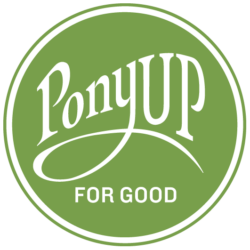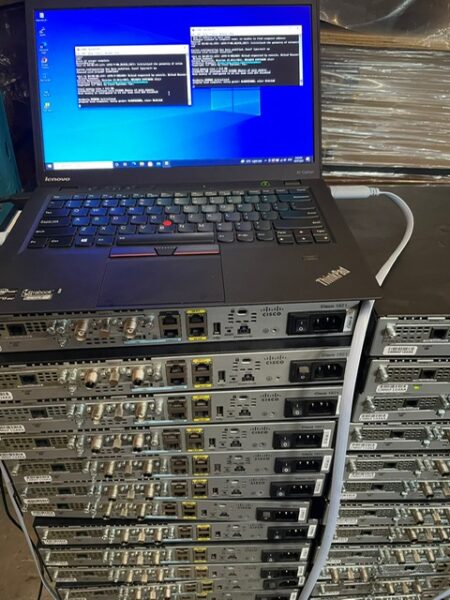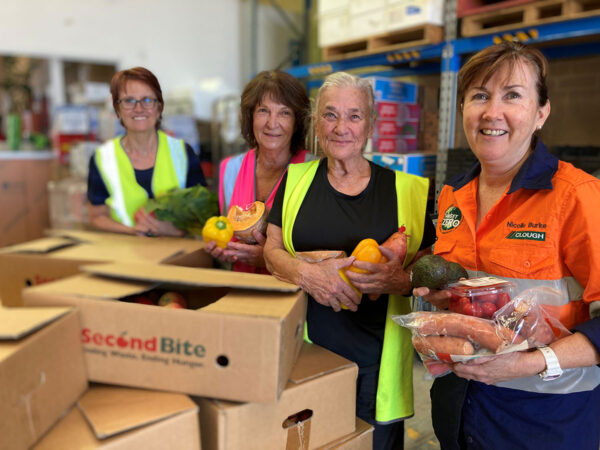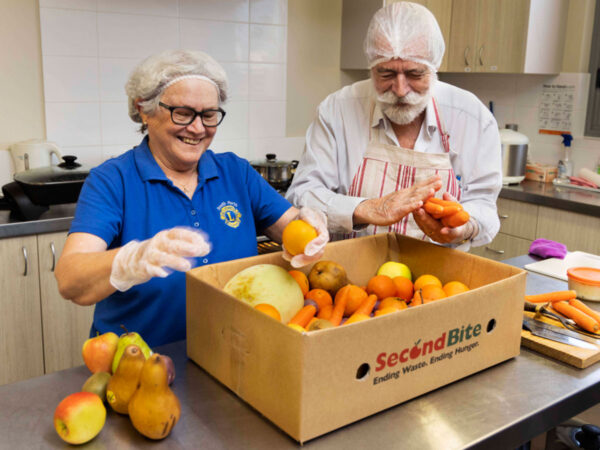The shift towards a circular economy is a journey and process that requires collaboration among various stakeholders to realise their vision – often leading to outcomes that surpass their original goals. ANZRP (Australia New Zealand Recycling Platform) has established such a partnership with PonyUp for Good, serving as a conduit not only for providing e-product stewardship services to our members but also for aiding families and individuals facing adversity.
PonyUp for Good is a certified social enterprise utilising a platform for managing surplus and end-of-use technology and equipment. Fifty percent of profits generated are redirected towards providing nutritious meals for Australians facing food insecurity.

Who is PonyUp for Good and what is their mission?
PonyUp for Good is an Australian organisation that has developed a service tailored for the business sector, offering a simple, non-monetary means to contribute to charitable endeavours. Primarily, this service revolves around offering secure and sustainable collection for unwanted technology assets, providing data destruction – and subsequently facilitating their re-deployment for reuse or, if not feasible, responsible recycling.
The business model, which is predicated on a ‘reuse first mandate’ where appropriate, underpins the circular economy agenda by assessing in sequence reuse, repair and recycling opportunities. Where extending the life of these products is not possible, PonyUp for Good directs the end-of-life computer equipment and accessories to ANZRP who engage re-processors to undertake the final recycling. The recycling process ensures that the recovery of valuable materials is maximised and that any toxic chemicals are kept out of our landfills.
The overarching mission driving these efforts is to generate profits that can be donated to SecondBite. SecondBite is Australia’s largest fresh food rescue charity, committed to rescuing surplus food so it can be redistributed to those in need. PonyUp for Good donates 50% of its profits to SecondBite thereby helping to put healthy meals on the tables of those families and individuals facing food insecurity. In fact, the partnership between PonyUp for Good and SecondBite recently reached a significant milestone when through the efforts of the PonyUp for Good team they were able to pass the750,000th donated meal milestone. SecondBite has very recently merged with FareShare, an aligned organisation, so both parties can work together more effectively and be better able to deliver meals nationally.
What services does PonyUp for Good provide?
PonyUp for Good is a secure, full-service solution for unwanted and decommissioned information technology equipment. Its suite of services include:
- Full IT asset disposal service
- Data destruction and certificates
- Asset registers by serial number
- Provision of on-site technology bins and cages
- Recycling services for all e-waste
- Employee and stakeholder communications and events
- ESG Reporting / Environmental and Community outcome reporting
PonyUp for Good now also provide uniform recycling programs for many of its clients. This not only keeps fabric out of landfill, but it ensures uniforms don’t end up being a brand risk – ending up in op shops or in the hands of people who are not employees.

PonyUp for Good, the circular economy and expansion of Australia’s e-stewardship scheme.
The services provided by PonyUp for Good are important and are becoming increasingly significant as government and industry seek to accelerate a transition to the circular economy. The circular economy can be defined as “a model of production and consumption, which involves sharing, leasing, reusing, repairing and recycling existing materials and products to maximise their lifecycle and keep them in use as long as possible”. This way of thinking and doing things is exactly how PonyUp for Good approaches its business – where opportunities for reuse and repair are prioritised ahead of recycling.
The Australian government is now examining how it embeds this approach as part of the expansion of the National Television and Computer Recycling Scheme (NTCRS). In 2023 the Government made public its intent to build on the NTCRS by expanding it to include small electrical and electronic equipment and solar photovoltaic (PV) systems. As part of this expansion, the government is considering widening the range of service obligations that the industry must adhere to. If adopted, this could impose an obligation on industry “to encourage maximising the re-use of products”. For many leading technology brands, including ANZRP members, this obligation represents “business as usual” – where customers are provided with service and support for the equipment they procure, and where once it requires updating or replacement, they are supported to access reuse or refurbishment options as a priority, with recycling options for items that are not suitable for this pathway.
Whilst the obligations for reuse have never formed part of ANZRP’s remit under the regulations that govern the scheme, ANZRP has been working with it its members to explore maximising re-use of products. We are therefore pleased to be working with with PonyUp for Good and look forward to seeing how our partnership can evolve for the mutual benefit of all concerned.
More information about PonyUp for Good
PonyUp for Good is a past finalist in the Victorian Premier’s Sustainability Awards and the Banksia Small Business Award as well as winner of the Social Enterprise Award.
ANZRP, PonyUp and FareShare
To date the partnership between PonyUp for Good and SecondBite has put 823, 650 fresh meals on the table of those in need.
ANZRP staff recently took the opportunity to volunteer at FareShare by assisting in the preparation of meals. This was a wonderful chance for staff to learn more about the great work FareShare do in the community and the difference it makes to many. Volunteering is a tangible way to assist and one our staff would recommend. More information on how to assist can be found on the FareShare website.
The interaction between ANZRP and FareShare also found other ways in which we could work together to collect and recycle some of the unwanted plastics that FareShare generate through its day-to-day operations.

